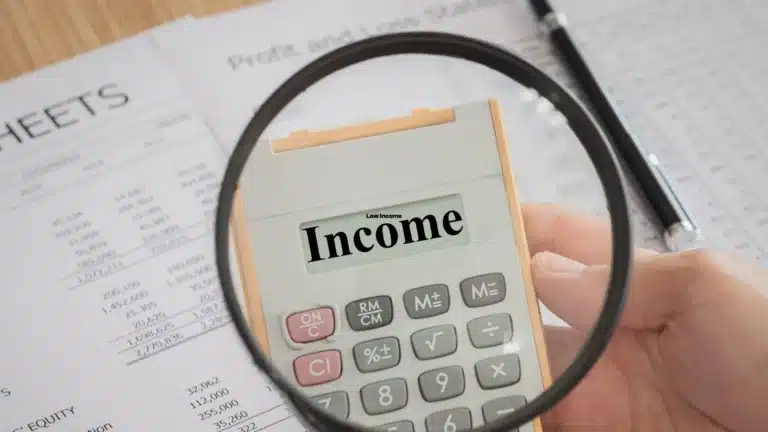Living paycheck to paycheck is all too familiar for many American workers, especially those on low wages. Life’s unpredictability often compounds the financial struggles of those living on a tight budget. Unexpected expenses, such as medical bills, car repairs, or sudden job losses, can throw even the most carefully planned budgets off track. According to recent studies, nearly 60% of American workers lack a $500 emergency fund, which means many are unprepared when unforeseen financial challenges arise. Learning how to manage unexpected expenses on a low income is essential for building financial resilience in these situations.
In this blog, we’ll explore practical strategies and resources that can help you navigate financial emergencies without falling deeper into debt.
Introduction: The Challenge of Unexpected Expenses on a Low Income
Managing finances on a low income is difficult, but unexpected expenses can make it even more challenging. Many American workers struggle to handle emergency costs like medical bills, car repairs, or sudden job losses. These situations can lead to stress, debt, and long-term financial instability without a financial safety net. Finding reliable solutions to bridge the gap between income and emergency expenses is essential for financial stability and peace of mind.
Living Paycheck to Paycheck and Facing Financial Emergencies
Living paycheck to paycheck is a harsh reality for many low-income American workers. According to reports, nearly 60% of Americans do not have a $500 emergency fund, making unexpected expenses a significant financial burden. A sudden medical bill, a necessary car repair, or a job loss can derail an already tight budget, forcing individuals to seek high-interest loans or credit card advances. Without proper financial planning, these emergencies can quickly escalate into long-term debt, increasing financial insecurity.
Why Managing Unexpected Expenses is Harder on Low Wages
When earning a low wage, every dollar has a designated purpose—rent, utilities, groceries, and transportation, leaving little to no room for unexpected costs. The inability to save regularly makes financial emergencies even more overwhelming. Many workers resort to credit cards, payday loans, or borrowing from friends and family to cover urgent expenses. This reliance on short-term financial solutions can lead to a cycle of debt, where repaying borrowed money becomes an additional financial burden, further limiting financial stability.
Read: Top 10 Financial Tips for American Workers: How to Handle Emergency Bills
How Beem Everdraft™ Can Help Bridge the Gap
Beem Everdraft™ provides a reliable financial solution for those struggling with emergency expenses. It offers instant cash advances of up to $1,000 without credit checks, income restrictions, or fixed due dates, ensuring financial relief without the stress of interest or hidden fees. Unlike traditional payday loans, Beem Everdraft™ allows users to access emergency funds instantly while using smart budgeting tools to manage their income and expenses better. This service is especially helpful for those learning how to manage unexpected expenses on a low income, as it offers a safer, more flexible alternative to high-interest borrowing. By providing fast, fee-free access to cash, Beem Everdraft™ supports users in maintaining financial stability during emergencies.
Understanding the Financial Struggles of Low-Income Workers
Low-income workers face constant financial challenges, from rising living costs to unpredictable work hours. These conditions make it difficult to save or plan for the future, often leaving little room to handle emergencies. Learning how to manage unexpected expenses on a low income becomes crucial in this context, as even small unplanned costs can lead to financial instability. Understanding these struggles is essential for finding effective solutions to manage expenses, build savings, and respond to unexpected financial emergencies with greater confidence.
The Reality of Budgeting on Low Wages
Living on low wages presents several financial challenges. With rising costs for basic needs such as rent, utilities, and groceries, it’s difficult to allocate funds for savings or emergencies. Many workers are already stretched thin when an emergency expense arises. Let’s break down the key struggles of low-income workers.
Rising Costs Make It Hard to Save
Costs of everyday necessities like rent, utilities, and groceries are consistently rising. The gap between income and essential expenses is narrowing for low-income workers, leaving little to no room for savings. The reality is that most low-income workers spend almost all their earnings just to cover the basics.
Irregular Pay and Unstable Work Hours
Many low-income workers rely on gig jobs, part-time shifts, or seasonal work. This type of employment doesn’t guarantee a fixed income or set hours, which makes budgeting even more challenging. Without consistent income, managing finances becomes an exercise in constant adjustment, making it difficult to plan for emergencies or unexpected costs.
High Cost of Emergencies
Emergencies like car breakdowns, medical bills, or sudden rent hikes can throw a financial curveball. These unexpected expenses can lead to a financial crisis for those living paycheck to paycheck. With no financial cushion to fall back on, low-income workers often resort to high-interest loans or credit cards, further compounding their debt.
Smart Budgeting Strategies for Handling Unexpected Expenses
Managing unexpected expenses on a low income requires smart budgeting. By prioritizing essentials, tracking spending, and building a small emergency fund, you can create financial stability and be better prepared for unforeseen costs. Knowing how to manage unexpected expenses on a low income empowers you to take control of your finances, even when challenges arise unexpectedly.
Planning for Emergencies on a Limited Income
When every dollar counts, budgeting smartly is the key to surviving unexpected expenses. A well-planned budget can help you prioritize your spending and prepare for the unexpected. Below are practical steps you can take to plan effectively and stay ahead of financial emergencies:
Create a Bare-Bones Budget
Start by creating a bare-bones budget, focusing solely on your essential expenses. These include rent, food, utilities, and transportation. By cutting back on non-essential spending, you can free up some funds for emergencies.
Track Every Dollar to Avoid Unnecessary Spending
Use budgeting tools like Beem’s budgeting features to keep track of your income and expenses. This will help you identify areas where you might be spending unnecessarily. By tracking every dollar, you can avoid impulse purchases and better allocate your money toward necessities and savings.
Build a Small Emergency Fund – Even $5 at a Time
Even if it’s only $5 per paycheck, try to build a small emergency fund. While it may seem like a slow start, consistent contributions can help create a financial buffer over time. Starting small and saving gradually can help you handle unexpected expenses in the future without relying on credit or loans.
Cutting Expenses to Free Up Cash for Emergencies
Reducing expenses is key to managing financial emergencies on a low income. By cutting unnecessary costs, negotiating bills, and utilizing free resources, you can free up cash to handle unexpected expenses without relying on debt.
Reduce Unnecessary Spending
Take a close look at your monthly expenses and cut anything that’s not necessary. Consider canceling unused subscriptions, cooking meals at home instead of eating out, and utilizing free entertainment options. These small changes can free up additional cash for emergency savings or unexpected costs.
Negotiate Bills and Payment Plans
If you cannot pay bills in full, don’t ignore them. Instead, contact service providers, such as utility and phone companies, and ask for lower rates, payment extensions, or payment plans. Most companies are willing to work with customers facing financial hardship, and negotiating can help you avoid late fees or service disruptions.
Use Public Assistance and Local Resources
Many local organizations and nonprofits offer temporary relief in times of financial hardship. Food banks, rental assistance programs, and other community resources can help you stay afloat during tough times. Look into available programs and take advantage of them when necessary.
Emergency Cash Solutions for Low-Income Workers
For low-income workers, unexpected expenses can create immediate financial stress. Finding quick, reliable cash solutions without high-interest debt is crucial. From budgeting strategies to emergency cash advances, several options can help cover urgent needs while maintaining financial stability.
What to Do When You Need Money Urgently
When an unexpected expense arises, it’s essential to take immediate action to address the most urgent needs first.
Prioritize Immediate Expenses
Focus on paying for essential expenses such as rent, utilities, and healthcare. These are your primary responsibilities, and delaying payment could lead to serious consequences, like eviction or utility shut-offs. Once the immediate needs are covered, you can consider other options for managing the remaining expenses.
Consider a Cash Advance Over a Payday Loan
Rather than relying on payday loans, which come with exorbitant interest rates, consider alternatives like Beem Everdraft™. Beem offers cash advances up to $1,000 without interest, credit checks, or fixed repayment due dates. With no hidden fees or interest charges, Beem Everdraft™ provides a flexible and more affordable way to access emergency funds.
Why Beem Everdraft™ is a Safer Alternative to High-Interest Loans
High-interest loans, like payday loans and credit card advances, can create a cycle of debt, making financial recovery difficult. Beem Everdraft™ offers a safer alternative by providing instant cash advances with no interest, hidden fees, or credit checks, allowing individuals to cover emergency expenses without falling into financial hardship.
No Hidden Fees or Interest Charges
Unlike payday loans, which can quickly spiral out of control due to sky-high interest rates, Beem Everdraft™ offers instant cash advances with no hidden fees or interest charges. This makes it a safer and more manageable option for those needing emergency funds.
Quick Access to Emergency Cash
Beem Everdraft™ gives you immediate access to cash when you need it most. You can get the funds within minutes, so you don’t have to wait days or weeks to cover urgent expenses.
Flexible Repayment Without Pressure
One of the biggest benefits of Beem Everdraft™ is the flexible repayment option. There are no fixed due dates, so you can repay the amount when it’s convenient for you, without the stress of looming deadlines.
Here’s something useful: Use Beem’s Instant Cash Advance Without Hurting Your Credit Score
Avoiding Financial Pitfalls When Facing Unexpected Expenses
Unexpected expenses can lead to financial mistakes that make situations worse. Avoiding common pitfalls like relying on high-interest loans, ignoring bills, or missing out on assistance programs can help maintain financial stability.
Common Money Mistakes and How to Avoid Them
While it’s easy to make financial mistakes when dealing with unexpected expenses, there are strategies you can use to avoid common pitfalls.
Depending on Credit Cards for Emergencies
Using credit cards for emergencies can lead to high-interest debt, making it difficult to escape from the cycle of debt. Avoid using credit cards unless absolutely necessary, and consider alternatives like Beem Everdraft™ or other emergency cash solutions.
Ignoring Bills Until It’s Too Late
Ignoring bills can lead to service shut-offs and unnecessary late fees. Always address bills as soon as you receive them and, if necessary, negotiate payment plans or extensions to avoid financial penalties.
Not Exploring Financial Assistance Options
Many workers qualify for local grants, rental relief programs, and food assistance. Don’t overlook these resources—they’re designed to help workers in times of financial need and can provide temporary relief from financial pressures.
Alternatives to Beem Everdraft™ for Emergency Assistance
If you’re exploring alternatives to Beem Everdraft™ for emergency assistance, it’s important to understand how to manage unexpected expenses on a low income without relying solely on one service. Options like local credit unions, community assistance programs, paycheck advance apps, or even negotiating payment plans with service providers can provide short-term relief. Building a small emergency fund, even just a few dollars at a time, can also make a big difference. Knowing how to manage unexpected expenses on a low income involves planning ahead, staying informed about available resources, and choosing the solution that best fits your financial situation.
Other Ways to Secure Emergency Cash
There are several alternatives to high-interest loans when facing an urgent financial need. These options can help secure emergency cash without added financial stress, from government assistance programs to employer-based aid and community lending. Understanding how to manage unexpected expenses on a low income is key to choosing the right solution—whether it’s tapping into local nonprofit resources, accessing hardship programs through utility companies, or exploring paycheck advance services with lower fees.
Government and Nonprofit Programs
Government programs like SNAP, TANF, and LIHEAP can help with food and utility bills. Nonprofit organizations also offer rental assistance and other forms of financial relief.
Employer-Based Assistance
Some employers provide hardship funds or paycheck advances to assist workers during financial difficulties. Check with your employer to see if they offer any assistance options.
Borrowing from Friends or Community Lending Groups
If you’re in a bind, borrowing from friends or community lending groups can be an option. Local credit unions may also offer low-interest loans that can be more affordable than payday loans.
FAQs: Managing Unexpected Expenses on a Low Income
Q: How can I prepare for emergencies if I don’t make enough to save?
A: Start small and save consistently, even $5 per paycheck. Look for ways to cut back on non-essential spending and build up your savings over time.
Q: What are the best options for emergency cash without high-interest debt?
A: Beem Everdraft™, community aid programs, and employer hardship funds are great alternatives to high-interest payday loans.
Q: How do I budget when my income fluctuates?
A: Base your budget on your lowest-earning month and save extra during higher-earning periods. Tracking your income and expenses will help you plan for both predictable and unpredictable months.
Q: What financial resources are available for low-income workers?
A: SNAP, rental assistance, and food aid programs can provide immediate relief. Local nonprofit organizations often offer help, too.
Conclusion: Stay Prepared for Unexpected Expenses, Even on a Low Income
Dealing with surprise costs can be stressful, especially if you’re learning how to manage unexpected expenses on a low income. However, with smart planning, the right budgeting tools, and emergency cash options like Beem Everdraft™, it’s possible to stay in control. By understanding how to manage unexpected expenses on a low income, you can reduce the risk of debt by tracking your spending, saving consistently, even in small amounts, and taking advantage of available financial resources. Download the app here.















































